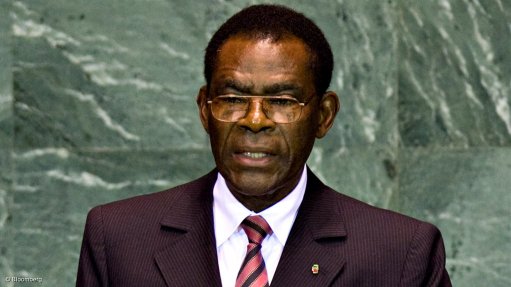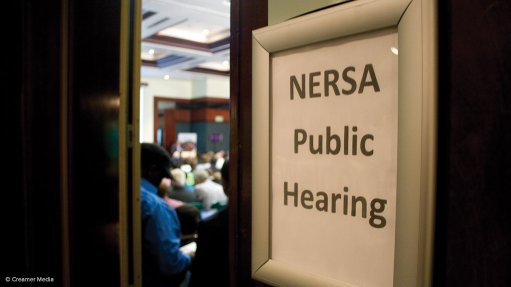Progress on climate action stalls, hindering Paris Agreement goals – PwC report
The rate of global decarbonisation has slowed to its lowest level since 2011 after four years of moderate progress, PwC UK’s latest Low Carbon Economy Index (LCEI) shows.
Although the global economy is getting more energy efficient, overall energy consumption rose by 2.9% with the resurgence in the growth of energy-intensive industries such as construction and steel across rapidly industrialising economies, including China, India and Indonesia.
The extreme heat and cold weather patterns seen globally last year also led to a growth in demand for electricity and gas for heating and cooling. This is a stark warning of the potential knock-on impacts of more unpredictable weather patterns and events associated with climate change.
South Africa’s gross domestic product grew by 0.6% in 2018, while energy-related emissions also increased by 0.6%, indicating that economic growth has not been decoupled from emissions, says PwC.
Coal remains the primary source of energy in South Africa, at about 71% of generation, while only 2.3% was generated by renewables.
Meanwhile, the global renewable energy sector grew at the highest rate since 2010, at 7.2%, but the increase in energy demand continues to be met by greater consumption of fossil fuels, which increased global emissions by 2% in 2018. This is the fastest rise in emissions since 2011.
Even though there was an increase in global emissions in 2018, the carbon intensity of the global economy fell by 1.6%. However, this is less than half the decarbonisation rate of 3.3% witnessed in 2015, when more than 190 governments committed to the Paris Agreement.
If this slow rate of decarbonisation continues, countries will be unable to achieve their own national targets as part of the Paris Agreement, or the more ambitious global goal of limiting warming to well below 2 °C above pre-industrial levels, says PwC.
The analysis estimates that the average decarbonisation rate the Group of 20 economies needs to meet their own national determined contribution targets (NDCs), which form part of the Paris Agreement, is 3% yearly to 2030, almost double the 2018 global decarbonisation average of 1.6%.
South Africa has the highest carbon intensity rate of all the G20 countries.
To meet the Paris Agreement goal of limiting warming to well below 2 °C, PwC’s analysis estimates that the global economy will need to reduce its carbon intensity by 7.5% every year from now until 2100.
This is nearly five times faster than the current decarbonisation rate.
To gain a fair chance of limiting warming to 1.5 °C – to prevent reaching the point that carbon within the Earth’s frozen permafrost is released and begins an unstoppable negative feedback cycle of global change – means reaching an 11.3% decarbonisation rate, seven times the current rate.
Comments
Press Office
Announcements
What's On
Subscribe to improve your user experience...
Option 1 (equivalent of R125 a month):
Receive a weekly copy of Creamer Media's Engineering News & Mining Weekly magazine
(print copy for those in South Africa and e-magazine for those outside of South Africa)
Receive daily email newsletters
Access to full search results
Access archive of magazine back copies
Access to Projects in Progress
Access to ONE Research Report of your choice in PDF format
Option 2 (equivalent of R375 a month):
All benefits from Option 1
PLUS
Access to Creamer Media's Research Channel Africa for ALL Research Reports, in PDF format, on various industrial and mining sectors
including Electricity; Water; Energy Transition; Hydrogen; Roads, Rail and Ports; Coal; Gold; Platinum; Battery Metals; etc.
Already a subscriber?
Forgotten your password?
Receive weekly copy of Creamer Media's Engineering News & Mining Weekly magazine (print copy for those in South Africa and e-magazine for those outside of South Africa)
➕
Recieve daily email newsletters
➕
Access to full search results
➕
Access archive of magazine back copies
➕
Access to Projects in Progress
➕
Access to ONE Research Report of your choice in PDF format
RESEARCH CHANNEL AFRICA
R4500 (equivalent of R375 a month)
SUBSCRIBEAll benefits from Option 1
➕
Access to Creamer Media's Research Channel Africa for ALL Research Reports on various industrial and mining sectors, in PDF format, including on:
Electricity
➕
Water
➕
Energy Transition
➕
Hydrogen
➕
Roads, Rail and Ports
➕
Coal
➕
Gold
➕
Platinum
➕
Battery Metals
➕
etc.
Receive all benefits from Option 1 or Option 2 delivered to numerous people at your company
➕
Multiple User names and Passwords for simultaneous log-ins
➕
Intranet integration access to all in your organisation


















